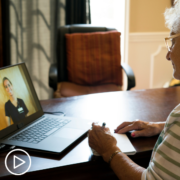How to Regain Self-Esteem and Body Confidence After Cancer Treatment
Getting through cancer treatment is a huge accomplishment. The moment you’re finished with your final session, it can feel like you’re on cloud nine. You’ve done something incredible.
Unfortunately, it may not take long for those positive feelings to waver.
Cancer treatments are often intense and can cause noticeable changes to your body. While those changes are necessary to fight back against the disease, many can linger once treatment is done. That can leave you with low self-esteem. You might even start to struggle with mental health conditions like depression or anxiety1.
Whether it’s healing from major surgery, dealing with hair loss, weight fluctuations, or a change in your sex drive, it’s not uncommon for the after-effects of cancer treatment to make you see yourself differently.
So, how can you regain confidence in your body after your treatment journey is over?
Common Body Image Issues
Going through cancer treatment can make you feel strong on the inside, but lose confidence in your external appearance. Because both the disease and treatment can cause your body to change, it’s not uncommon for your physical appearance to affect your self-esteem.
If you’re feeling “off” after your treatment or you’re struggling with your self-confidence, it could be the result of how you see yourself when you look in the mirror. Some of the most common signs of body image issues are:
- Your feelings about your body are affecting other areas of your life
- You speak negatively/harshly about your image
- You avoid seeing your own image as much as possible
- You obsessively try to change your image with makeup/grooming
Unfortunately, we’re currently living in a period that makes it harder than ever to avoid your own image. If you’re working remotely, for example, you might be one of the 300 million people logging into Zoom meetings every day2.
The current remote culture has created some self-esteem issues of its own. Working from home can be beneficial for patients going through treatment or those in recovery. But, it’s not without its potential drawbacks.
Problems like Zoom fatigue and Zoom dysmorphia have come to the forefront for many people. Zoom dysmorphia, for example, is a condition that causes someone to develop self-image issues from looking at themselves on a screen. When you’re on Zoom meetings all day, it’s easy to start nitpicking your flaws or seeing things that others wouldn’t even notice. If you’ve recently gone through cancer treatment and are already dealing with body image issues, seeing a pixelated version of yourself on a screen can make matters worse.
So, what can you do if you’re struggling with any of these problems?
Explore Your Emotions
You might feel negative about having a negative image of yourself. After all, you just went through something life-changing and came out on the other side. But, one of the biggest mistakes you can make is ignoring how you really feel. By shoving your feelings aside, you’re putting yourself at risk for them to “bubble up” and explode later.
Instead, accept how you’re feeling. Accept the loss you’ve experienced when it comes to the way you used to look. It’s okay to feel sad or frustrated. It’s okay to grieve.
Once you’ve worked through those feelings, you can attempt to shift your mindset. Focus on the things you’ve been through and how they have made you stronger. What have you gained from this experience, and how have you changed positively?
If you’re having a difficult time focusing on the brighter side, lean on your support system. That can include:
- Family members
- Friends
- Doctors
- Support groups
- Online forums
You can even talk to other cancer patients for advice about self-image3. The important thing is to remember you’re not alone. You undoubtedly had support with you throughout your treatment. That doesn’t just disappear because you’re cancer-free. Keep leaning on that support for help with your mental health and advice on how to keep moving forward.
Focus On What You Can Change
When it comes to your physical appearance, there are things you can and can’t control. For example, if you lost your hair during treatment, you can’t make it grow back any faster. But, you can opt for a wig, or choose to wear hats when out in public. If your skin became dull and dry, you can’t change it overnight. But, you can use creams and lotions to bring back hydration and elasticity. If you experienced weight loss, you can purchase clothes that fit better for now, and work on slowly regaining the weight over time.
By focusing on the things you can control, you’re less likely to get frustrated. Most image issues you’ll face after cancer treatment are temporary. It may take a long time to get back to normal. But, you can take comfort in knowing most of them aren’t permanent.
When it comes to physical issues like surgery scars, they will typically fade over time, too. You can help that process with different creams and body butter. But, it’s okay to accept the fact that you may always have a scar or two. Instead of looking at those scars as something “ugly” or embarrassing, consider the fact that you get to stand there and see them. You made it through something that not everyone else gets to. A surgery scar is a sign of strength and victory.
In addition to changing what you can and accepting what you can’t, regaining confidence can come from leading a healthy life. Practice self-care every day. Develop healthy habits that make you feel good about yourself, inside and out. Get enough sleep, work out if you feel strong enough, and take time to relax each day.
Your body has been through a lot. While it’s understandable to feel self-conscious at first, realizing what it’s done for you can make you more accepting and willing to love yourself again.
Sources:
- Cancer patients left to cope with mental health problems alone
- Zoom User Stats: How Many People Use Zoom in 2021?
- Self-Image, Sexuality, and Cancer
Beau Peters is a creative professional with a lifetime of experience in service and care. As a manager, he’s learned a slew of tricks of the trade that he enjoys sharing with others who have the same passion and dedication that he brings to his work. When he is not writing, he enjoys reading and trying new things.










